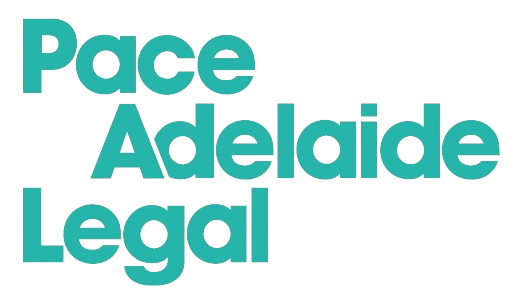SOME TOPICS TO CONSIDER WHEN MAKING YOUR WILL

Thinking about preparing a Will is one of those tasks that few of us do willingly. None of us like to think about the end of our life and how it could impact our loved ones, but Estate Planning is an important way in which you can protect your loved ones by giving them certainty at an uncertain time.
It is always best to have your Estate Planning handled by a lawyer, however we have identified a few topics that should get you thinking about the types of issues you may want to consider when engaging in this process.
- Choosing an Executor:
- The Executor is the person who will seek a grant of probate, call in your assets, pay any debts of the Estate, attend to any other matter which requires attention (such as litigation) and distribute the Estate in accordance with the Will.
- Though not always necessary (or even preferred), Will makers should give consideration to having more than one executor.
- Executors have a great deal of power to manage a Deceased’s Estate. Even in the case of multiple executors where Executors should act jointly, certain circumstances can arise where one Executor may act independently without consulting the other Executor. Therefore, any chosen Executor should be individually trusted.
- Where multiple Executors are appointed, ask yourself are you comfortable that the Executors will cooperate in the administration of the estate?
- Always name substitute Executors.
- If choosing a professional Executor, consider their fees to administer the estate.
- How much control you have over distributing certain assets
- Jointly held property CANNOT be dealt with in a Will. This can include real property (land) and joint bank accounts. If you did wish to deal with these assets in your Will and not leave them to the surviving joint owner/s you should first ‘sever’ the joint tenancy – which must be done properly in order to be legally effective.
- Superannuation CANNOT be dealt with in a Will unless you have directed your Superannuation Trustee (in a legally binding document) to distribute your superannuation funds to your Legal Personal Representative/Deceased Estate. Some questions to ask yourself:
- Do you have a Binding Death Benefit Nomination?
- Is your Binding Death Benefit Nomination up to date?
- Is your Binding Death Benefit Nomination filled out in a manner that will bind the Superannuation Trustee (in accordance with the law and the rules of the fund)?
- Assets held in a Trust CANNOT be disposed of in a Will. However, there may be other actions you can take in your Will in relation to a Trust – such as appointment of an appointor or executor. This depends on the Trust Deed (as amended).
- If it is important to you how certain personal effects are gifted you CAN and should make a list of how these personal effects are to be gifted.
- Protections against Bankruptcy
- The position at law is that if you are bankrupt at the time you become entitled to an inheritance (in other words – when the deceased dies) then your inheritance vests with your trustee in bankruptcy.
- This should also be in the mind of a Will maker because it is very unlikely a Will maker will want their beneficiary (often a close family member) to lose out on their inheritance.
- You can protect against a loved one losing an inheritance because of bankruptcy by:
- regularly updating your Will; and/or
- asking your lawyer to insert bankruptcy protections when drafting a Will so that your loved one’s inheritance will be protected.
- Please keep in mind that regularly updating your Will is not the best strategy to make sure a loved one who is bankrupt or is at risk of becoming bankrupt receives their inheritance. Your loved one may not have been completely candid about their financial troubles, it may take too long to update your Will, or you may not have legal capacity to change your Will. That is why it is always best to discuss these issues with your lawyer and draft your Will to best suit your circumstances.
- Consider business related estate planning
- Succession plans for companies – review your shareholders’ agreements or consider having one drafted. Consider asking your lawyer about drafting a Business Succession Deed which, through insurance, funds involuntary departures like death and Total and Permanent Disability.
- When operating a business through a trust – review the Trust Assets to ensure there is no co-mingling of personal and business assets. Also review the Trust Deed to ensure that it takes into account your passing – in particular by reference to substitute trustees and substitute appointors.
- Consider completing other estate planning documents
- The two most common documents we prepare along with a Will are a Power of Attorney and an Advance Care Directive.
Power of Attorney
- A Power of Attorney (PoA) document is used to authorise another person or persons to do, on your behalf, anything you can lawfully do by an attorney. This can be tailored to your specific circumstances. Some common examples – PoA documents that only take effect if you become mentally incapacitated, PoA documents that are limited to dealing with certain assets (like land).
Advance Care Directive
- An Advance Care Directive document allows you to express your desires and instructions for medical care, including end of life care, where you wish to live and other personal arrangements (for example you can give instructions on what activities you like to do and do not like to do).
- A ‘substitute decision maker’ (if one is appointed) can use this document as a guide when making decisions on your behalf – in circumstances where you cannot make decisions. If you have refused health care in this document, this direction must be followed if relevant to the circumstances.
We hope this article has been helpful to you and please feel free to contact our friendly lawyers at Adelaide Legal for any assistance you may need in estate planning. Contact us here or give us a call on (08) 8410 9294 to speak to one of our friendly lawyers today.
